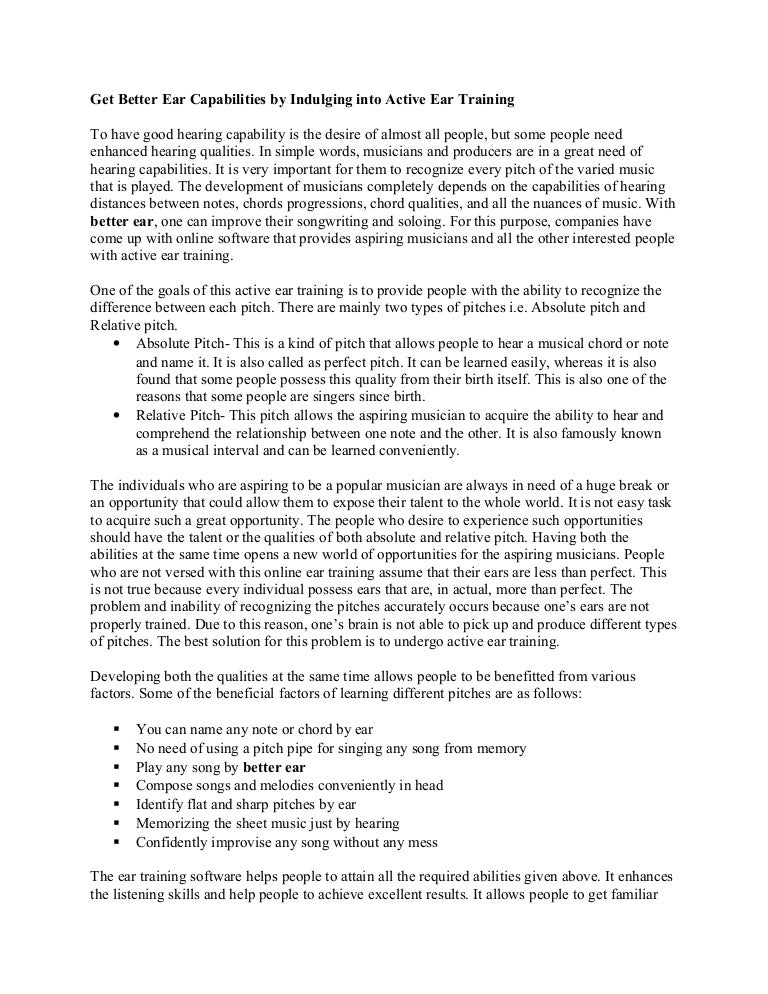
The third type of hearing loss is mixed hearing loss, which means that both sensorineural and conductive hearing loss are affecting your ability to hear. Conductive hearing loss has a much greater probability of being reversed. The middle and outer ears are less complex than the inner ear and are also easier to access.

Common types of conductive hearing loss include blockage (such as earwax, puss, or other natural substances), bone abnormalities, and damage to the eardrum. Genetics can also contribute to sensorineural hearing issues.Ĭonductive hearing loss is caused by issues in either the middle ear or the outer ear. This includes aging, loud noises, and diseases. This type of hearing loss is usually permanent and can be triggered by most of the underlying causes mentioned above. These components of the ear are both delicate and complex, which make treatment difficult. Sensorineural hearing loss is the most common type of hearing loss and is triggered by damage to the inner ear or the auditory nerve. Generally, sustained hearing loss can be classified in one of three given categories: What is the difference between sensorineural and conductive hearing loss? Whether these types of hearing loss can be reversed will depend on the type of hearing loss you are experiencing and the intensity of the underlying cause. For many people, there are multiple factors contributing to their hearing loss, which can make the diagnosis process more difficult.

Other possible causes of hearing loss include hearing loss caused by diseases, exposure to loud noises, injury, and ototoxic medications. While age-related hearing loss cannot be “reversed”, hearing aids can be used to improve your overall hearing. However, for some people, age-related hearing loss occurs at an even faster rate. Every 20 years a person ages, they will lose about 10 percent of their ability to hear. The most common cause of hearing loss is age. Hearing loss affects a large portion of the population and, naturally, there are many different identified causes. What are the different causes of hearing loss? In order for an audiologist to help, they will need to identify the underlying cause of your hearing loss, identify the specific type of hearing loss you are experiencing, and develop a treatment plan tailored to your needs. While some cases of hearing loss can be immediately improved, others will require long-term treatment and some will be completely irreversible (in which case, hearing aids or cochlear implants will likely be recommended). The answer to this question will depend on the type of hearing loss you have. The National Institute on Deafness and Other Communication Disorders ( NIDCD ) claims that “approximately 15 percent of American adults (37.5 million) aged 18 and over report some trouble hearing.”Īt Sound Relief Hearing Center, one of the most common questions new patients have is “Can hearing loss be reversed?”

Loss of hearing can also contribute to various mental health conditions, such as depression As you begin to lose your hearing, you will have difficulty engaging in fruitful conversations with others, enjoying your favorite albums or movies, and may increase your risk of driving accidents (and other types of accidents ). Hearing loss can be an incredibly frustrating condition to deal with. In this article, we will discuss the most important things for you to know about hearing loss and how and when hearing loss can be reversed.


 0 kommentar(er)
0 kommentar(er)
